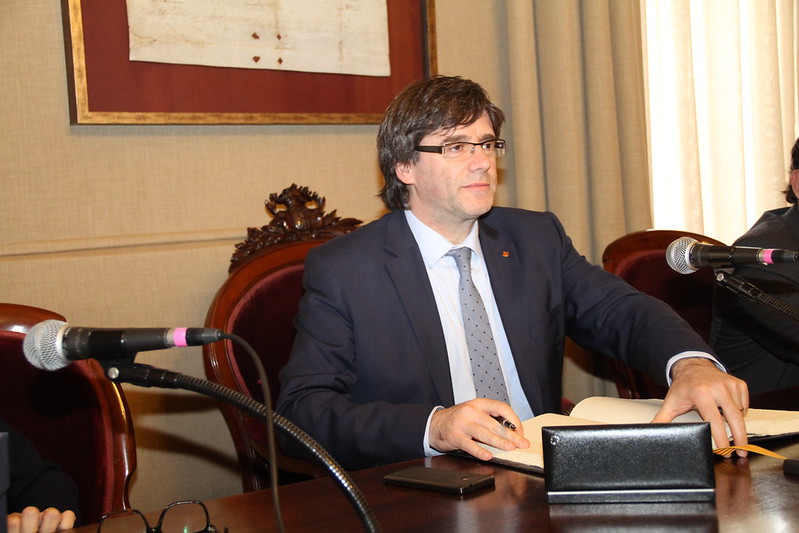The investigation, published in May 2022 by OCCRP and the Spanish newspaper El Periódico, revealed that former Soviet and Russian diplomat Nikolau Sadovnikov met in Barcelona with former separatist leader Carles Puigdemont on the eve of Catalonia’s independence vote in October 2017.
The Russian presented himself as an envoy of the Russian government and offered Puigdemont economic and military aid for a future independent Catalonia in exchange for laws that would favor the use of cryptocurrencies and turn the new independent state into a global virtual currency haven.
Catalonia should also never criticize Moscow’s treatment of its opponents such as Aleksei Navalny or the actions of Belarusian President Alexander Lukashenko.
The identity of the man who led the group and other details from the meeting appear to have not been known to the Spanish judiciary.
According to the decision announced on Monday, the magistrate has reviewed the “abundant documentation” in the complex case and has found data that would confirm the “close relations between some of those investigated and individuals of Russian, German, and Italian nationality.”
Some of the individuals occupied diplomatic positions, or had “relations with the Russian secret services” or with far-right parties, the announcement said.
The judge said the interest of the Russian was to establish “political and economic influence” over an independent Catalonia, which would destabilize the European Union.

